Hajduk Season Ticket Holders and Club Members Sell Out Poljud For First Time
March 9, 2022 - History has been made at Poljud, as Hajduk season ticket holders and club members have sold out the stadium for the first time - and what better way than for the derby against Dinamo this weekend.
Hajduk will play the biggest Croatian football derby against Dinamo at Poljud in the 27th round of the Croatian First League on Saturday at 18:00.
Not only will Hajduk host Dinamo in front of a sold-out Poljud, but for the first time in history, tickets were bought exclusively by Hajduk season ticket holders and club members.
During the release of tickets, Hajduk indicated that until the day of the match, members would have priority for tickets, and there are currently more than 62,000 of them! Hajduk pointed out that the unsold tickets would go on sale on Saturday. However, that will no longer be necessary as members showed incredible enthusiasm and secured all available tickets.
"For the first time in the club's history, only season ticket holders and Hajduk club members filled the entire Poljud stadium for the Hajduk - Dinamo derby!" Hajduk announced on social media Tuesday night. About 1700 Dinamo fans are expected on Saturday (1470 in the southwest sector).
This will be the fourth consecutive game at Poljud where Hajduk fans bought all available tickets. Poljud was full in December against Osijek, and against Slaven Belupo and Rijeka in February, the maximum number of spectators filled the stands, considering the epidemiological measures that were in force at the time (and the closure of the North stand against Belupo).
Ahead of the 27th round, Dinamo is in first place in the standings with 53 points, and Hajduk is currently in fourth place with five points less. In the last round, Hajduk played 1:1 against Istra 1961 in Pula, while Dinamo defeated Šibenik 3:0 at home.
This is only the second time that Hajduk and Dinamo will compete in the current season. The first match was postponed at the request of GNK Dinamo due to their group stage appearance in the UEFA Europa League. A recent decision confirmed the new date for that match - April 20 at 19:00 in Split.
To read more about sport in Croatia, follow TCN’s dedicated page.
Skier Zrinka Ljutić Becomes Croatia's First Female World Junior Champion!
Mach 8, 2022 - Young Croatian skier Zrinka Ljutić is the world junior slalom champion and has become the first Croatian female to win gold at the FIS World Junior Championships!
Croatian skier Zrinka Ljutić drove two great runs in Panorama, Canada. She was the fastest with an advantage after the first, while in the second she had the second-best time, but no direct competitor was close and that was more than enough for the final result of 1:39.88, or 84 hundredths of an advantage over the second-placed German Emma Aicher.
Sweden's Moa Bostroem Mussener won the bronze medal with one second and 21 hundredths behind.
"The feeling is amazing. I couldn't believe it when I reached the finish line, because it was very difficult, the track was damaged, I didn't know if I was fast enough, I didn't know anything, but I fought as hard as I could," said the world champion for Sportske Novosti and described how she felt when she saw that the result good.
"When I saw that I had 84 hundredths better time, I was so happy."
This is the first Croatian women's gold at the FIS World Junior Championships.
So far, Janica Kostelić, Ana Jelušić and Nika Fleiss have won medals at the junior world competitions for Croatia in the women's category, and Istok Rodeš and Elias Kolega in the men's competition, but of all the Croatian representatives on the podium, only Rodeš has been on the highest step so far after taking gold in 2016 in Sochi.
As the new world junior champion, Ljutić secured the slalom at this season's World Cup final, which will be held in Courchevel, France, from March 16 to 20. The women’s slalom is scheduled for Saturday, March 19.
The 18-year-old skier is a member of the Croatian Ski Club Žuti Mačak from Zagreb.
To read more about sport in Croatia, follow TCN’s dedicated page.
19 easyJet Summer Lines to Pula, Split, Dubrovnik Operate from End of March
March 9, 2022 - The latest flight news to Croatia as 19 easyJet summer lines to Pula, Split, and Dubrovnik begin at the end of the month!
At the beginning of the summer flight schedule, British airline easyJet is introducing regular flights to Pula, Split and Dubrovnik airports. In the last week of March, easyJet will operate 44 return flights to three Croatian airports, reports Croatian Aviation.
easyJet will be a regular guest at the airports in Pula, Rijeka, Zadar, Split and Dubrovnik this summer.
Pula lines
easyJet is announcing a total of 9 scheduled flights to Pula Airport this summer, from London, Amsterdam, Basel, Berlin, Bristol, Geneva, Glasgow, Luton and Paris. All lines, except those to and from London, will start operating in May and June.
As of March 28, a regular line between Pula and London (Gatwick Airport) will be introduced, which will run 3 times a week, every Monday, Wednesday and Saturday. 624 seats are available on this line for the first two rotations.
Rijeka and Zadar lines
Rijeka Airport will have two easyJet lines this summer, to London and Berlin, but they will start operating in May and June, respectively.
A total of 5 lines have been announced for Zadar, to Amsterdam, Basel, Berlin, London and Milan, but like Rijeka, some lines will start operating in May and some in June.
Split lines
For this summer season, 14 regular lines to Split Airport have been announced, and ten lines will start operating this month:
Amsterdam, from 28.03., five times a week,
Basel, from 27.03., daily,
Berlin, from 27.03., four times a week,
Bristol, from 27.03. four times a week,
Geneva, from 27.03., four times a week,
Glasgow, from 27.03., twice a week,
London, from 27.03., six times a week,
Manchester, from 29.03., three times a week,
Naples, from 28.03., four times a week,
Paris, from 29.03., twice a week.
In March alone, easyJet will operate a total of 29 return flights to Split Airport, and thus offer 4,524 seats in the last week of this month alone.
Lines to Luton, Lyon, Milan and Orly will start in May and June, and the number of weekly rotations on all lines will increase from week to week.
Dubrovnik lines
Dubrovnik Airport is a long-term easyJet destination in Croatia, and 8 international routes will depart from Dubrovnik in March for:
Amsterdam, from 27.03., twice a week,
Berlin, from 30.03., twice a week,
Bristol, from 27.03., three times a week,
Edinburgh, from 29.03., twice a week,
Geneva, from 29.03., twice a week,
London, from 27.03., five times a week,
Manchester, from 30.03., twice a week,
Naples, from March 29, three times a week.
easyJet will run 13 return flights to Dubrovnik in the last 5 days of March, with 2,028 seats on sale. Lines to Lyon, Nantes, Orly and Basel will start in May and June.
44 easyJet return flights from March 27 to 31 are a hint of a good summer season in which this well-known low-cost airline will significantly increase its market share compared to the previous two seasons.
In the peak summer season, easyJet will operate on 42 scheduled international routes from five Croatian airports, but a detailed analysis of the schedule for May, June and July will be known in the weeks ahead, given that operational changes are certainly possible.
Airlines from the A320 family, type A319, A320 and A321NEO, which have a capacity of 156 to 235 seats at easyJet, have been announced on the routes.
For more on flights to Croatia and other travel announcements, make sure to check out our dedicated travel section.
Exceptional Women in Croatian History You Should Know About
March 8th, 2022 - As we celebrate International Women’s Day, a tribute to some of the most remarkable women in Croatian history
Artists, performers, freedom fighters: Croatian history boasts many exceptional women. In a time when a woman’s role in society was mostly limited to that of a dutiful wife and mother, these fierce ladies boldly defied social norms, mastering their respective crafts, standing for their beliefs and sharing their talents with the world. This is in no way a definitive list, but only a glimpse into the many stories of inspirational women out there, starting with seven Croatian ladies you should definitely know about:
Ivana Brlić Mažuranić (1874 - 1938)
Dubbed the Croatian Hans Christian Andersen, Ivana Brlić Mažuranić rose to fame as one of the most popular Croatian writers for children.
Born to a noble family in Zagreb, Brlić-Mažuranić first tried her hand at writing educational essays and poetry. It wasn’t until 1913 that she captivated the public with a novel entitled The Marvellous Adventures and Misadventures of Hlapić the Apprentice (Croatian: Čudnovate zgode šegrta Hlapića), which quickly became one of the most loved books of children’s literature in Croatia and has retained its status to this day.
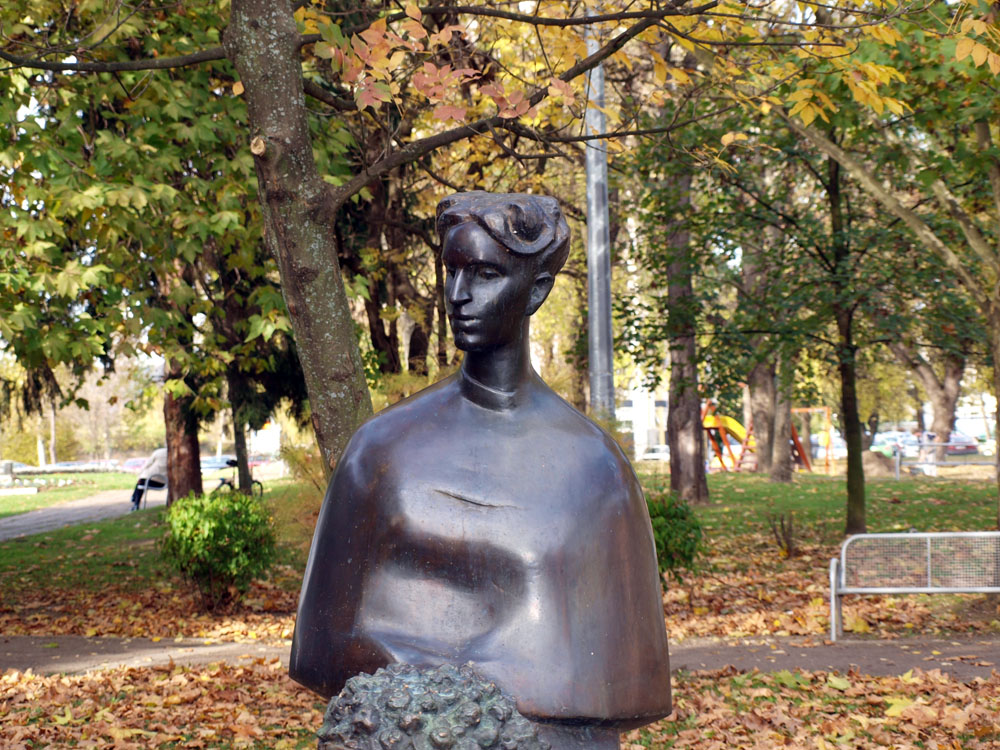 Bust of Ivana Brlić Mažuranić in Slavonski Brod / Frka, Creative Commons
Bust of Ivana Brlić Mažuranić in Slavonski Brod / Frka, Creative Commons
Her other best known work followed several years later: Croatian Tales of Long Ago (Croatian: Priče iz davnine), a collection of imaginative fairy tales rooted in Slavic mythology and folklore.
Brlić-Mažuranić was nominated for the Nobel Prize for Literature four times in a single decade, and was the first woman to be accepted into the Croatian Academy of Sciences and Arts as a corresponding member.
Slava Raškaj (1877 - 1906)
Slava Raškaj was a renowned Croatian painter, remembered as our greatest watercolorist of the late 19th century.
Deaf-mute since birth, Raškaj spent her childhood in Ozalj and was sent to a school for the deaf in Vienna at the age of eight. That’s where she first learned to draw, later going on to master the watercolour technique she'd become known for.
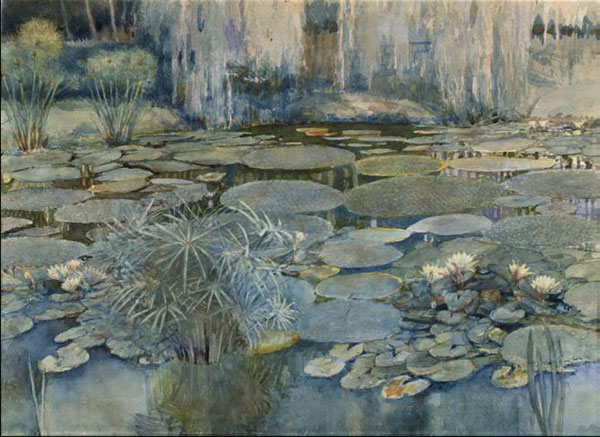 Slava Raškaj, Lillies
Slava Raškaj, Lillies
Her artistic talent was recognised by a local teacher who encouraged her to seek a mentor after she returned to Croatia at the age of sixteen. Turned down by Vlaho Bukovac who was simply too busy at the time, she started training under the renowned painter Bela Čikoš Sesija in Zagreb.
Raškaj soon embraced plein air painting, capturing outdoor scenes and landscapes in her ethereal watercolours. Her work was exhibited in Zagreb, Paris, Moscow and Saint Petersburg, and ranks among the best in Croatian art.
Nada Dimić (1923 - 1942)
Nada Dimić was a national heroine who fought with the Yugoslav Partisans in WWII.
Between the ages of 16 and 18, Dimić joined the Communist Youth and the Communist Party of Yugoslavia, joined the partisans as their first notable female member, took on special assignments, worked as an undercover agent, and coordinated partisan actions in Sisak and Karlovac.
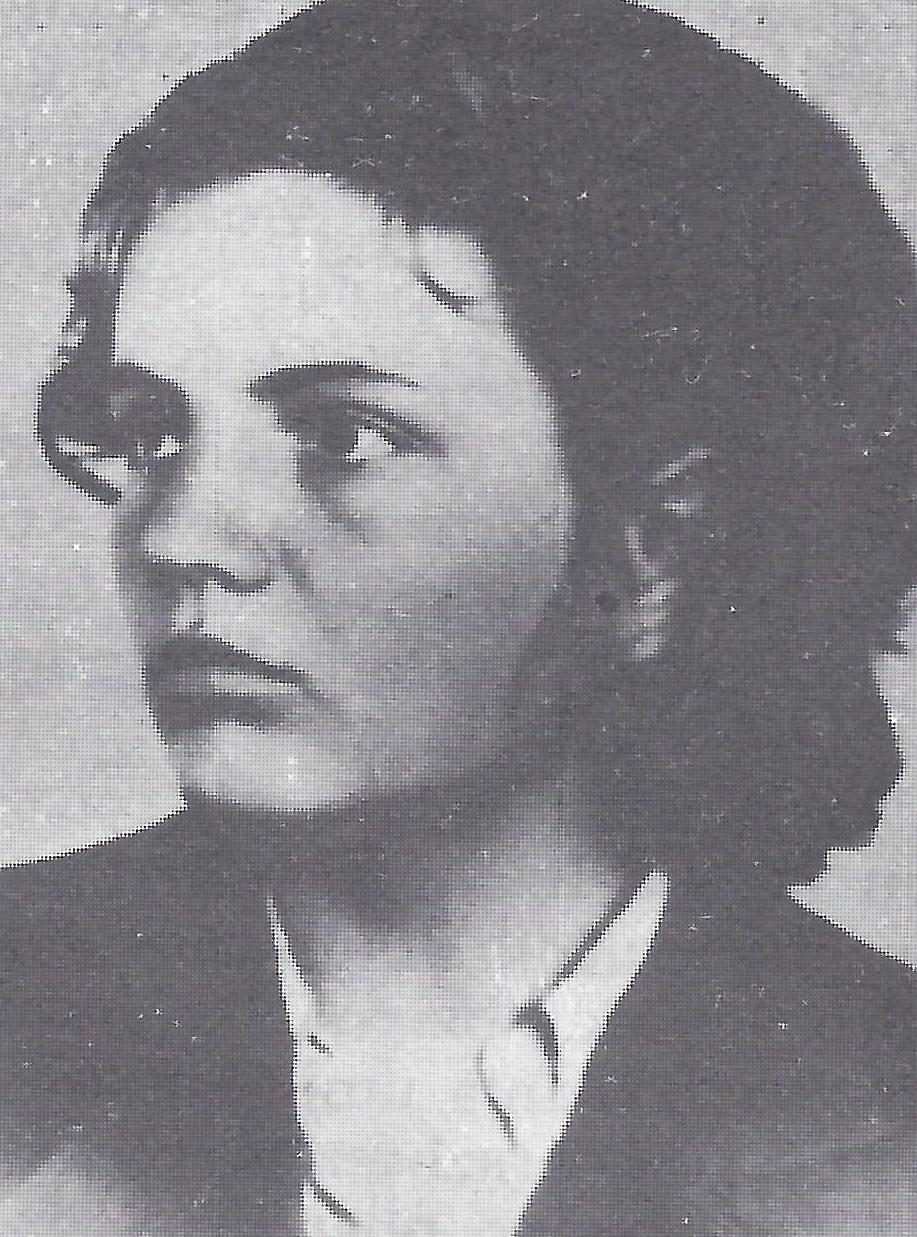
During that time, she was captured by the Ustasha and incarcerated on several occasions. In 1941, Dimić was imprisoned in Zagreb for two months, never revealing her real name despite all the torture and interrogation she was forced to endure. She was then sent to Stara Gradiška concentration camp, where she was murdered at the age of 18.
After the war, Dimić was posthumously declared a People’s Hero of Yugoslavia. Streets, schools and factories were named after the fearless heroine, including a famous textile factory in Zagreb (closed in 2000).
Dragojla Jarnević (1812 - 1875)
Dragojla Jarnević was a poet, teacher and a fierce patriot, remembered as one of the most notable members of the Croatian national revival movement.
Jarnević wrote and published impassioned patriotic poems and essays, but her most famous literary work is a personal diary she kept between 1838 and 1874. In over 1,200 pages of autobiographical notes, she also recorded her personal opinions of her contemporaries and various political events.
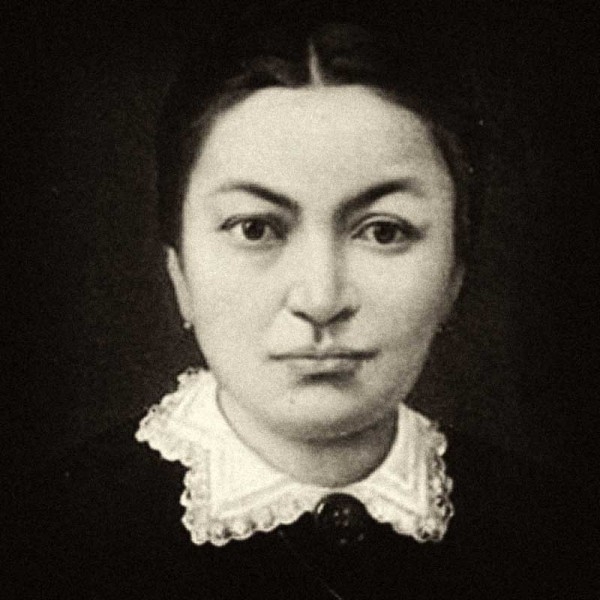
A lesser known fact about Jarnević is that she’s considered to be the first female mountaineer and rock climber in Croatia. In 1843, she famously climbed the Okić peak from the southern, steeper side of Plešivica mountain without any mountaineering gear. The trail was later named Dragojla in her honour.
Marija Jurić Zagorka (1873 - 1957)
Widely known by her pen name Zagorka, Marija Jurić was the first Croatian female journalist and one of the most read Croatian writers.
Zagorka was a patriot, feminist and activist who wrote for numerous papers and journals, including a few she herself established. As a reporter, she covered major political events in the region; she was also a relentless advocate of women’s rights and toured the region holding public lectures on the subject.
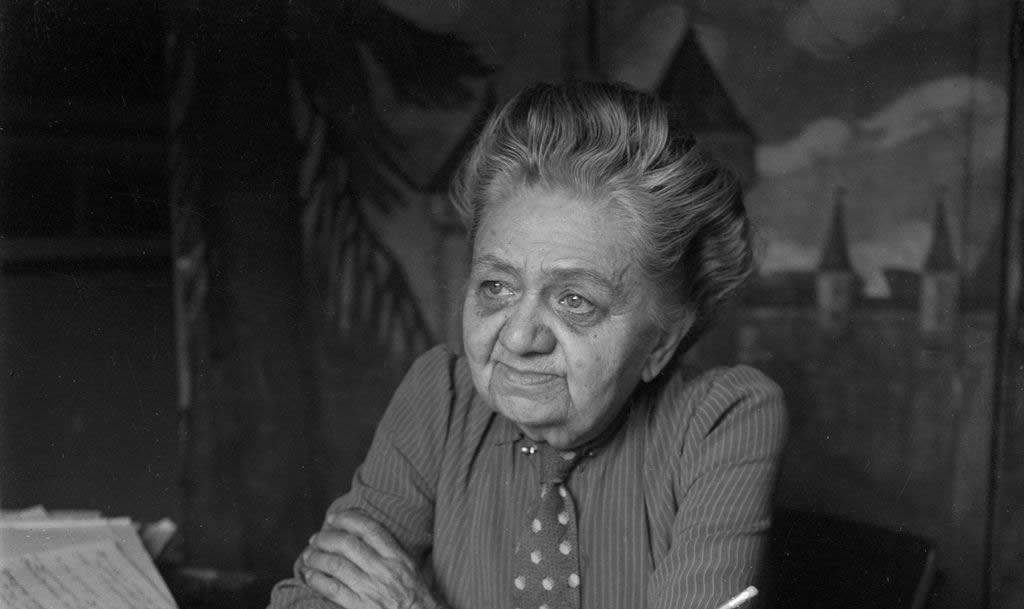
She’s an author of two dozen novels, including Gordana, the longest novel in the history of Croatian literature that counts over 9000 pages in 12 volumes. Her fiction, best described as a blend of Croatian history, adventure and romance, made her extremely popular with the readership.
Even though 11 of her novels (in Croatian) are kept at the Library of Congress in the US, none of her work has ever been translated into English.
Dora Pejačević (1885 - 1923)
Born into the famous noble family from Slavonia, countess Dora Pejačević grew to become one of the most renowned Croatian composers of all time.
As the family were known as distinguished patrons of the arts, especially music, the countess was encouraged to nurture her music talent from an early age. She first received piano lessons from her mother, and even though she went on to study music in Zagreb, Dresden and Munich, she is thought to be mostly self-taught.
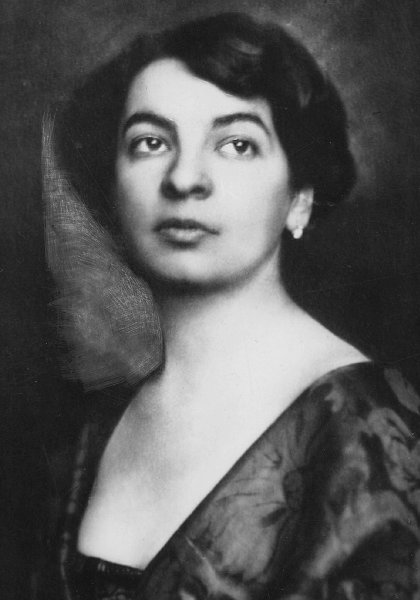
Pejačević composed the first modern symphony in Croatian music (Symphony in F-sharp minor), and is known as the author of the first Croatian piano concerto.
Mia Čorak Slavenska (1916 - 2002)
Mia Čorak Slavenska was the first Croatian dancer to ever become a prima ballerina - and arguably the greatest Croatian-born ballet dancer of all time.
Čorak trained from an early age, first taking the stage when she was five years old; at thirteen, she was already performing as a soloist. She took on the pseudonym Slavenska after she moved to Paris in the 1930s, where she soon joined the Ballet Russe de Monte Carlo.
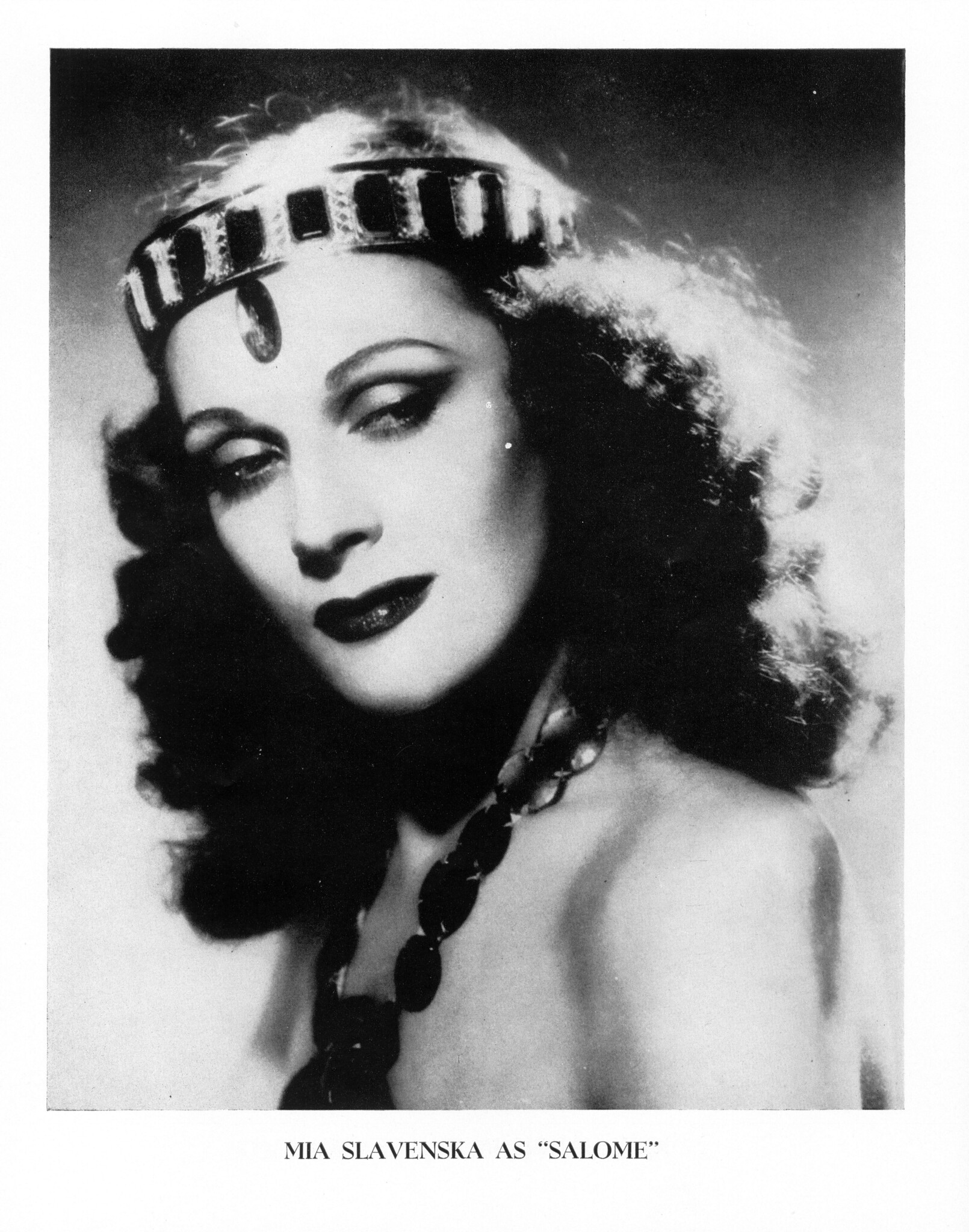 Mia Slavenska / Patrick, Flickr
Mia Slavenska / Patrick, Flickr
In the 40s, Slavenska moved to the US where she continued to dance principal roles, touring with smaller ballet troupes. After she retired as a performer, she went on to work as a reputable teacher and choreographer in New York and LA.
Milka Trnina (1863 - 1941)
Milka Trnina was a renowned opera singer who gained international fame performing in major opera houses all over Europe and the US, including the Metropolitan Opera in New York.
Trnina studied in Zagreb and Vienna, then went on to perform as a dramatic soprano in Leipzig, Graz, Bremen and Munich, over time gaining a reputation of an exceptional interpreter of Wagner and Puccini. She appeared at the Royal Opera House in Covent Garden in several roles, and debuted at the Met in 1900.
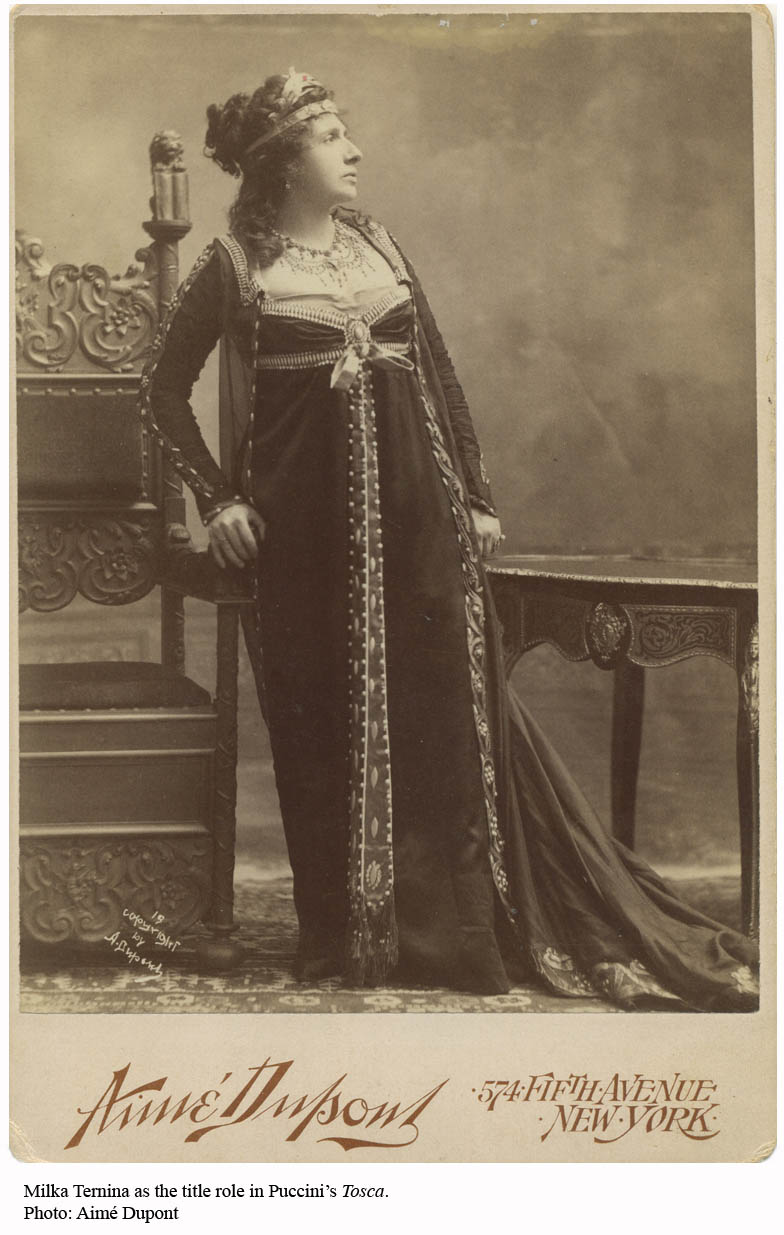
After Puccini himself attended one of her performances in London and described her interpretation of Tosca as ideal, Trnina's reputation was solidified as the most distinguished exponent of this particular title role.
Her career was cut short by an attack of facial paralysis which prevented her from maintaining her exceptional level of performance. Trnina thus retired from professional singing at the peak of her fame and moved into a teaching role, her best known pupil being Zinka Milanov who'd follow in her mentor's footsteps and also appear at the Met.
Green Future Conference: Leading Behavioural Scientist Dr Fadi Makki Coming to Split
March 8, 2022 - More than 30 distinguished domestic and international speakers will share their knowledge and experiences on the green transition at the Green Future Conference held at the Croatian National Theatre in Split on June 9 and 10.
The Green Future Conference to be held on 9 and 10 June in Split will bring together some of the most important stakeholders on green transition, an inevitable and important process that has already begun and will mark the coming years and decades, in terms of environmental protection, e- mobility, energy, public policy, economy and business operations. The conference is therefore supported by the two largest Croatian technology companies, Rimac Group and Infobip.
More than 30 distinguished domestic and international speakers will share their knowledge and experiences on this topic at the Croatian National Theatre in Split. In addition to Matija Žulj (Agrivi), Federico Cristoforoni (Eutopia), Stephanie E. Trpkov (World Bank), Split mayor Ivica Puljak, four new speakers have confirmed their arrival.
Behavioural scientist Dr Fadi Makki has more than 25 years of experience in public and social policy concerning economic development, behavioural economics, social enterprise, healthcare, education, and sustainability. He leads the first unit for behavioural insights and incentives in the Middle East, B4Development, which is engaged in the preparation for the World Cup in Qatar where one of the main goals is to improve various aspects of the event that include behavioural components, such as transport and recycling. The goal is for Qatar to provide an optimal experience for approximately one million visitors expected during the championship. This is also the first time that behavioural science will be used during a large-scale event such as the World Cup.
Heliodor Macko is a successful businessman and technology enthusiast. He has been with SEAK since 2015, working as CEO on the development and internationalization of long-distance communication technology. In 2018, SEAK introduced charging stations for electric vehicles integrated with smart light poles, for which it received several international awards. Mr Macko believes this technology will help speed up the adoption of e-mobility globally, providing charging spots for people who park their cars on the streets.
"In order to achieve full energy independence in 2050, we must start acting now, and the Russian invasion of Ukraine is another reason to stop our dependence on fossil fuels as soon as possible. Achieving this by 2050 is not an easy task. We will need technological innovation, to change in industries and our habits, which can only be achieved through wise and rapid policy changes. Therefore, we must combine our best ideas, and this conference is just the place for it", said Heliodor Macko.
Laura Stäter is a passionate tourism professional with a strong focus on destination management and sustainability. She works as a marketing and public relations expert, as well as a PR and marketing manager for the Thai Tourist Board in the German market, providing as well advisory services to tourism companies that wish to base their business on sustainability.
"Green transition is extremely important in the context of tourism. Destinations are at risk due to climate change, the locals are under threat of pandemic, war, working conditions in supply chains, and animals are losing their habitat. Overtourism has had an adverse impact - the gap between rich and poor is widening, and only robust employees, habitats and businesses can survive in the long run. Sustainability is a long-term process and that is why at an event such as the Green Future Conference we need to inspire each other and find ways to foster a common understanding of sustainability and start acting immediately,” said Laura Stäter.
Josef Mouris is co-founder and CEO of ELECTRON Aviation and ELECTRON Aerospace. His love of aviation has been reflected in a career spanning more than two decades, and recently his commitment to tackling climate change has been reflected in a pioneering effort to develop affordable, CO2-free air transport on demand. As a professional air pilot, Josef has 15 years of flying experience at Flybe, the largest regional airline in Europe, and with about 23 years of glider piloting, private design of airfoils, propellers and electric aircraft, he leads the implementation of EV battery technology in the design and production of next-generation aircraft.
"The air traffic is responsible for more than 900 million tonnes of CO2 and is one of the fastest-growing emitters of greenhouse gases. While other sectors will shrink, aviation is likely to continue to grow, raising its share from 3% to more than 20% of all global emissions by 2050. If it does not change direction, it will crash. The Green Future Conference is one of many platforms that can help launch a green transition,” said Josef Mouris.
The Green Future Conference will be a centre for the exchange of knowledge, experiences, new technologies and solutions, but also innovative policies on green transition, a process that in the coming years and decades is an imperative for the economy of Croatia, the European Union and the rest of the world.
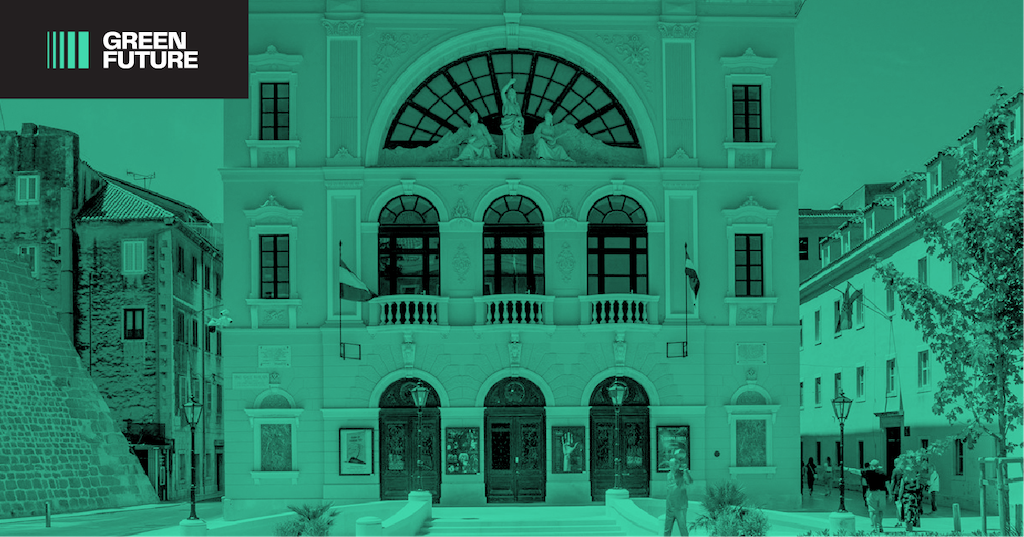
The conference agenda and all speakers will be presented on the official website of the conference in the coming period, and early bird tickets can be purchased until the end of March.
For more, check out our lifestyle section.
Minister Talks Heineken Croatia's Green Policy, Price Hikes, Đuro Đaković TEP
ZAGREB, 8 March 2022 - Economy and Sustainable Development Minister Tomislav Ćorić on Tuesday visited the Heineken Croatia production plant in Karlovac which has invested €10 million in green projects over the past ten years as part of its sustainable business strategy.
We had great support from our employees, consumers and the local community in that, underscored Heineken Croatia's CEO Marta Bulhak.
Ćorić assessed that the company is a good example of "what Croatia needs because all industry has to move to a green transition and to undergo digitisation and transfer to a circular economy."
He congratulated the company, that employs over 300 workers, 120 of whom are hired in Karlovac, for the company's "green policy."
Heineken Croatia is a part of the international brewing company HEINEKEN and is the second largest beer producer in Croatia.
More measures to deal with rising prices, if necessary
Speaking about the decision taken by the government yesterday to cap the fuel prices, Ćorić said that "as soon as it becomes necessary, additional measures will be taken to preserve the living standard of citizens and to make it possible for the economy to function normally."
"The thing that is happening on the gas and petroleum products markets as well as on the electricity market is the consequence of extraordinary circumstances in eastern Europe and the Russian aggression on Ukraine which has led to all markets erupting but I am certain that that will calm down," said Ćorić.
In the context of whether Croatia should ban the import of gas and oil from Russia, Ćorić said that Croatia will follow suit with the majority of EU countries. It is good that Croatia has an alternative supply direction through the LNG terminal, he underscored.
The fact that we have an LNG terminal on the island of Krk could help us to experience a smaller blow than many other European economies, said the minister.
Ćorić would not specify if he supported a ban on importing energy from Russia and underscored that that decision would be made at the highest political level while in his capacity as the economy minister he would try to make sure that the economic shock in Croatia leaves the least trace and for us to come out of this even more resilient and stronger.
Asked about the coming tourism season, Ćorić said that we can expect it to be a good season if the war in Ukraine stops in a short time, however, if the crisis lasts, people will be more cautious about deciding to travel.
Asked about workers' expectations for a similar procedure to be taken for the Đuro Đaković Termoenergetska Postrojenja (TEP) company as in the case of the takeover of Sberbank Croatia by Croatia's HPB bank, Ćorić said that contact has already been made and that the ministry's officials for industry are seeking a solution.
"Đuro Đaković TEP has been existing for decades. It has changed owners and has now fallen victim to the circumstances. The fact is that the owner is on the list for sanctions. We are deeply convinced that the company that employs 860 workers, particularly in Slavonia which is a less developed region, deserves special attention and that is why we are seeking a solution to prevent production from halting and with regard to liquidity and bank loans, to ensure undisturbed functioning," he said.
The minister said that refugees arriving from Ukraine would not be treated as a burden or cost as the Croatians had experienced the same destiny in the early 1990s.
Milanović Visits Technical Museum Exhibition About Women
ZAGREB, 8 March 2022 - On the occasion of International Women's Day, Croatian President Zoran Milanović on Tuesday visited the exhibition titled "Women and Technology – Exhibition of Gender Inclusive Themes", staged in Zagreb's Nikola Tesla Technical Museum.
The exhibition was opened on 13 November 2021 and will run through 15 March.
It is dedicated to the promotion of women who contributed to the development of science and technology.
"The exhibition made use of permanent exhibits from the Nikola Tesla Technical Museum and includes women that are not necessarily scientists, but professionally carried out work that is typically associated with men. Furthermore, the purpose is not to single out the contributions of individual female scientists and inventors, but to strive to give a broader perspective," according to a press release issued on the website of the Office of the Croatian President.
The exhibition presents information and the destiny of prominent women "who broke down socially imposed barriers and made a name for themselves in male stereotype occupations, and the anonymous women to whom science is indebted."
The exhibition shows that in the late 19th century and 20th century there was a total of 5,280 women employed in Croatia, with almost 2,000 being maids and 1,500 in trades and industry.
Between the two world wars, women accounted for 20% of those employed in industry. In textile industry, every second worker was woman, and most of those female workers were without any qualifications or with semi-qualifications and from rural areas.
In the 1970s they accounted for more than 30% employees in industry while the process of de-industrialisation in the 1990s first affected industries that employed women.
The idea of equal pay appeared in the mid-19th century, however, the pay gap still exists in corporations.
President Milanović noticed that similar pay gaps exist in the public sector too.
Opposition: New Minister Close to Russian Oligarchs, Vulnerable to Blackmail
ZAGREB, 8 March 2022 - The parliamentary Opposition on Tuesday criticised the ruling majority's proposal to appoint Ivan Paladina the new Construction Minister, saying that he was close to Russian oligarchs, which made him vulnerable to blackmail from the very beginning.
The Opposition also said that by nominating Paladina, the ruling HDZ was trying to dodge responsibility for the failed process of post-earthquake reconstruction.
Sandra Benčić of the Green-Left Bloc told reporters that the latest nomination showed that PM and HDZ leader Andrej Plenković not only made bad personnel choices but that Paladina was in a clear conflict of interest because he was manager of the Kupari company, which was to have made an investment in a former hotel complex whose demolition was opposed by Croatian architects, who demanded its preservation.
Katarina Peović of the Workers' Front said that Paladina was in a conflict of interest even before taking office, which, she said, is a classic example of "the HDZ's personnel policy."
Marijana Puljak of the Centre party said that it was difficult for PM Plenković to find a person for a ministerial post who was not compromised, stressing that this showed that "not everybody wants to have a relationship with the HDZ because people judge you by the company you keep."
Anka Mrak Taritaš (GLAS) said that the HDZ had evidently decided not to deal with reconstruction "but find a minister to shift all the blame onto, so this time they have opted for a manager."
Bridge party vice-president Nikola Grmoja said his party group was already calling Paladina "Vanyushka" because of his ties with Russians.
Grlić Radman, Žigmanov Advocate Better Status for Croat Minority in Serbia
ZAGREB, 8 March 2022 - Minister of Foreign and European Affairs Gordan Grlić Radman on Tuesday spoke with the leader of the Democratic Alliance of Vojvodina Croats, Tomislav Žigmanov, and the two discussed improving the status of the Croat minority in Serbia, the Foreign and European Affairs Ministry said in a press release.
"Considering that Serbia is still not implementing the provisions of the bilateral agreement on the mutual protection of rights of the Croat minority in Serbia and the Serb minority in Croatia, the talks underscored the importance of continuing to work on improving the status of the Croat minority in Serbia," the press release said.
The two officials talked about the current social and political circumstances in Serbia, with emphasis on the ethnic Croat community and activities by its key institutions.
They underscored that Croats in Serbia still live in an unfavourable social and political climate while Grlić Radman said that Croatia would continue to actively participate in protecting their cultural and identity interests as well as take the necessary steps in that regard, both in bilateral relations but also within the relevant international organisations.
As regards the coming election in Serbia, Grlić Radman and Žigmanov agreed that it was necessary to invest joint political efforts for ethnic Croats to obtain legitimate political representatives in Serbia's political institutions.
Women MPs Call For Continuing Fight Against Pay Gap, Protecting Victims Of Violence
ZAGREB, 8 March 2022 - A group of female MPs from different parties warned on Tuesday, on International Women's Day, about the unequal and unfair status of women in the Croatian society, and called for continuing to fight against the pay gap between women and men and securing protection for victims of domestic violence.
Offering her best wishes to women on their day, Sandra Benčić of the Green-Left Bloc said they wanted to raise key legislative issues such as those related to women and their right to a home, unfair and unequal ownership of resources, the issue of women workers and the right to the dignity of work and fair pay.
Benčić said they wanted to express support for women refugees, notably those from Ukraine, as well as all women exposed to war, violence and exile.
State should secure cheap housing for women victims of violence
Benčić said they wanted the state and local authorities to secure access to cheap public housing for women victims of violence so they could deal with the issue of the right to a home.
She wondered how it was possible that perpetrators of domestic violence did not have to leave their households while women and children had to move to shelters, and why the state had not secured minimum protection for women and children from the perpetrator invading their home after he serves two or three days in prison, which, she said, is the usual punishment.
"We think this should be regulated differently by law, in cases in violence the right to a home cannot and must not be treated as less important than the right of ownership. In this country absolutely nothing has been done for 30 years to enable women to acquire ownership of real estate the same way as men, notably in rural areas where very often they end up in the street and homeless," said Benčić.
Anka Mrak Taritaš of GLAS said that around 22 million women affected by the Russian invasion of Ukraine were in a life threatening situation or were travelling with their children to other countries.
Basic conditions for life, work of Ukrainian women
Mrak Taritaš said that those women should be provided with at least minimum conditions for life and work.
Katarina Peović of the Workers' Front said that International Women's Day commemorated the struggle of working women in Chicago for greater voting rights as well as labour rights.
"It is a day when we speak of the need for a higher pay for women, safer working conditions and a better life. That has been recognised by women's associations across Croatia and today they are organising a march under the slogan "March today, strike tomorrow" because they know that there can be no women's rights without equal material rights, wages and working conditions," she said.
If the new Labour Act, which the government has been working on for two years, is adopted, employers will be literally able to ask a worker to be available 24 hours a day, she said.
While the world is turning to initiatives for the right to disconnect during non-work hours, the new law aims to make working hours more flexible and introduces "unclear terminology" that will make it possible, through digital technology, to make a worker available 24 hours a day, she said.
Katica Glamuzina of the Social Democrats' parliamentary bench said that instead of making progress in more than 100 years of struggle for gender equality, one had to continue discussing the pay gap, the fight against gender-based violence, femicide, and ways to break the glass ceiling.
Without equality for women in society, a sustainable future for the entire world is out of reach, she stressed, noting that one should also talk about climate change as it affects women more because women make up the majority of the global population living in poverty and depending on natural resources that are also affected by climate change.


